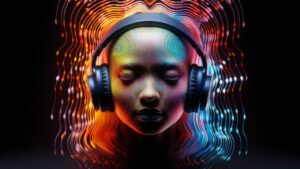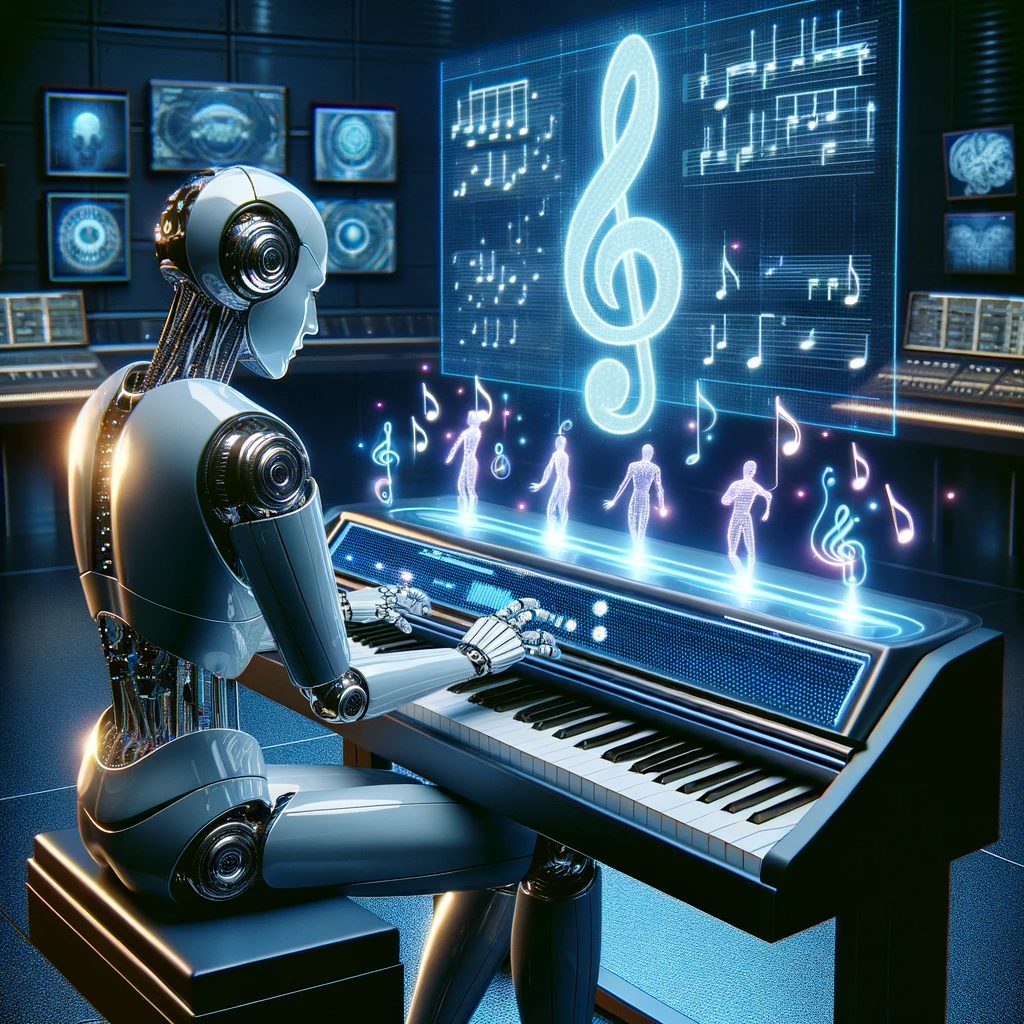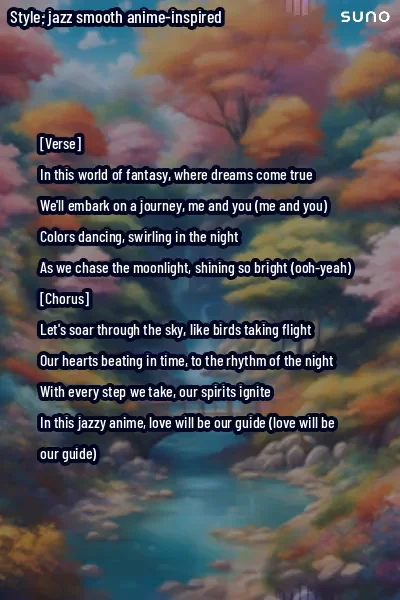The global Music Industry is all set to undergo more changes as new technology is being developed in Cambridge, Massachusetts. The new technology will shape the future of music creation.
The change is being led by only one company known as ‘SUNO’ whose mission is to redefine the boundaries of musical expression through the power of artificial intelligence.
As per the sources, Suno is developing the technology where with just a mere text like, ‘Make a reggae song about flying to space’ can generate song titled ‘Cosmic Skies’ and can build an advanced AI model that can conjures a one-minute tropical rhythm.
The fusion of AI generated music was made in collaboration with OpenAI’s and Chat GPT for lyrics. The experts are said that they can potentially rewrite the rulebook of musical composition.

Suno’s co-founder – Mikey Shulman has a vision of future music creation that transcends barriers and is targeting billion users across the world harnessing Suno’s platform for artistic expression.
Reportedly, the officials have put that in the context that there are approximate 9,276 musicians who are employed in the United States with an average age of being forty-four (44).
There is a need for the artists to not worry about the people who is going to copy their styles as if considering a prompt to include the name of the famous personalities such as Bob Marley or Drake, the AI will reject the prompt.
The company evolved from Bark is a text-to-speech program, which can compose a song with vocals, lyrics and rhythm in just about any genre and generate a lyric video to post on YouTube.
The co-founder Mickey Shulman said that there are many details that can be taken out to get the audio more smooth. He said, “Audio is not a discrete thing like words. It’s a wave. It’s a continuous signal.”
“The sample rate of High-quality audios is generally 44khz or 48hz which counts as 48,000 tokens of a second and is a big problem. So you need to figure out how to smooth that down to something more reasonable,” said Shulman.
Suno’s approach to mirrors is that of large language models such as Chat GPT, which deconstruct human language into tokens to generate text. However, the complexities of music bring unique challenges, necessitating innovative solutions to bridge the gap between text and audio.
Considerably, Suno can bring out the traditional music creation avenues concerning the potential disruptions. Shulman reassured that the mission of Suno is to empower music enthusiasts and not to replace the artists.

Marking the increased competition, Suno embarks on its journey as it looms in the distance as the music industry braces for changes and Google’s Dream Track pick-ups momentum on the horizon.
On an important note, Antonio Rodriguez, who sold his EchoNest company to Spotify to fuel its algorithm, has mentioned a major risk that record labels like Universal have taken a stance against artificial intelligence that could sue Suno.
The partner at the venture-capital firm Matrix, Rodriguez stated honestly, “if we had deals with labels previously, when the company was began, I probably wouldn’t have invested in it.”
“I think that they needed to make the product without the constraints,” said Antonio Rodriguez.
Investor Rodriguez envisions Suno as a transformative force which akin to the democratization of photography by camera phones and through social media platforms such as Instagram.



